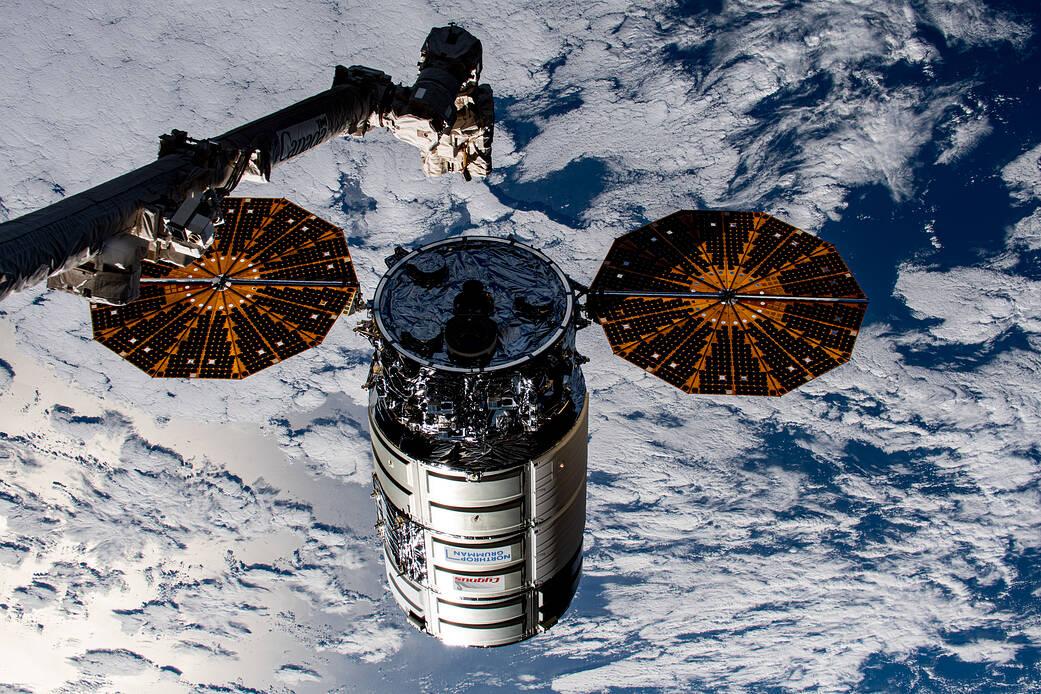
The Cygnus cargo craft moments before being captured by the Canadarm2 robotic arm on Aug. 4.
Credit: NASA
One week after berthing to the International Space Station (ISS), Northrop Grumman’s 19th NASA-contracted Cygnus resupply capsule fired its delta velocity thruster for 22 min., 48 sec. early Aug. 11 to raise the station’s orbit. Berthed to the Earth-facing port of the station’s U.S. Unity module...
Subscription Required
This content requires a subscription to one of the Aviation Week Intelligence Network (AWIN) bundles.
Schedule a demo today to find out how you can access this content and similar content related to your area of the global aviation industry.
Already an AWIN subscriber? Login
Did you know? Aviation Week has won top honors multiple times in the Jesse H. Neal National Business Journalism Awards, the business-to-business media equivalent of the Pulitzer Prizes.




